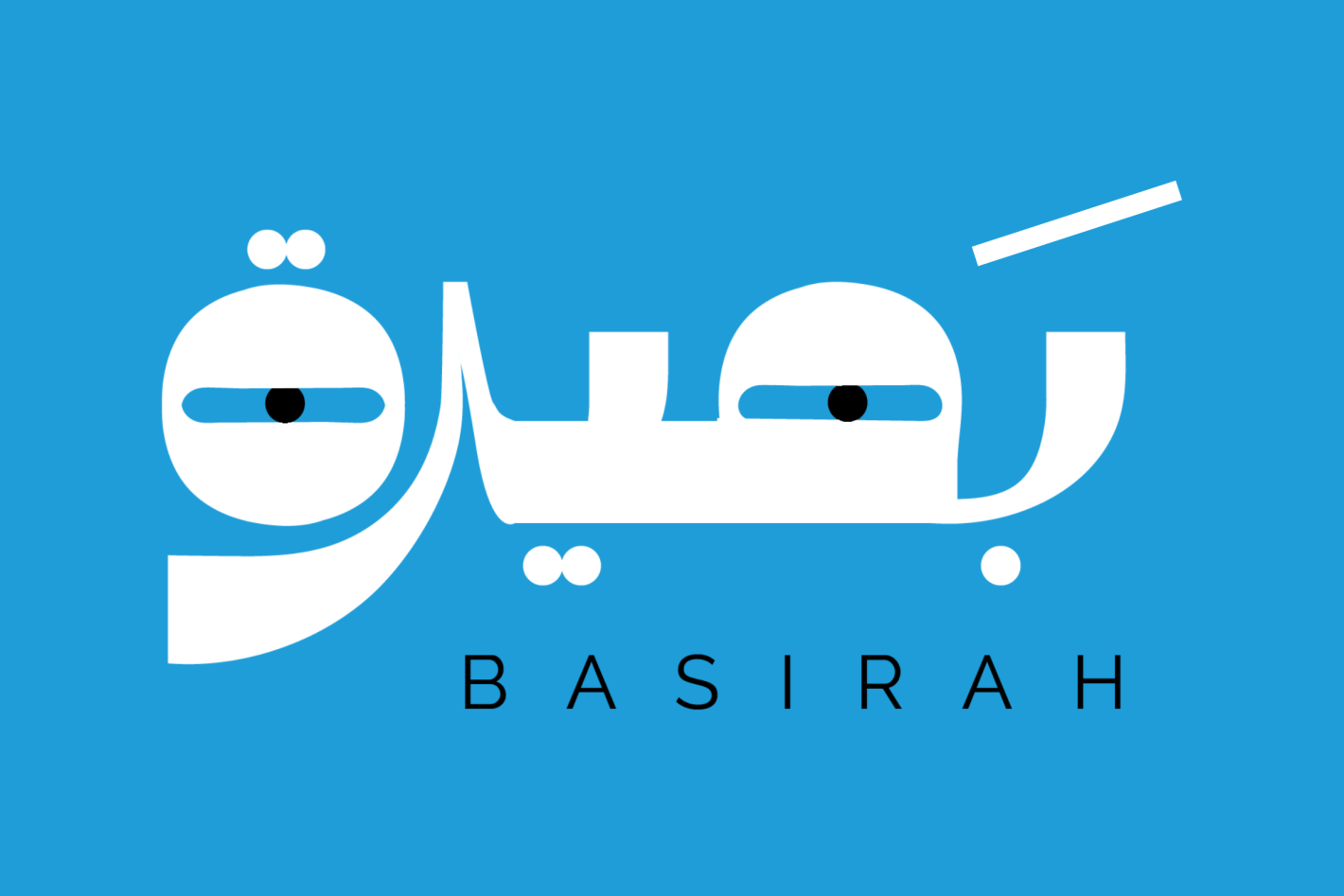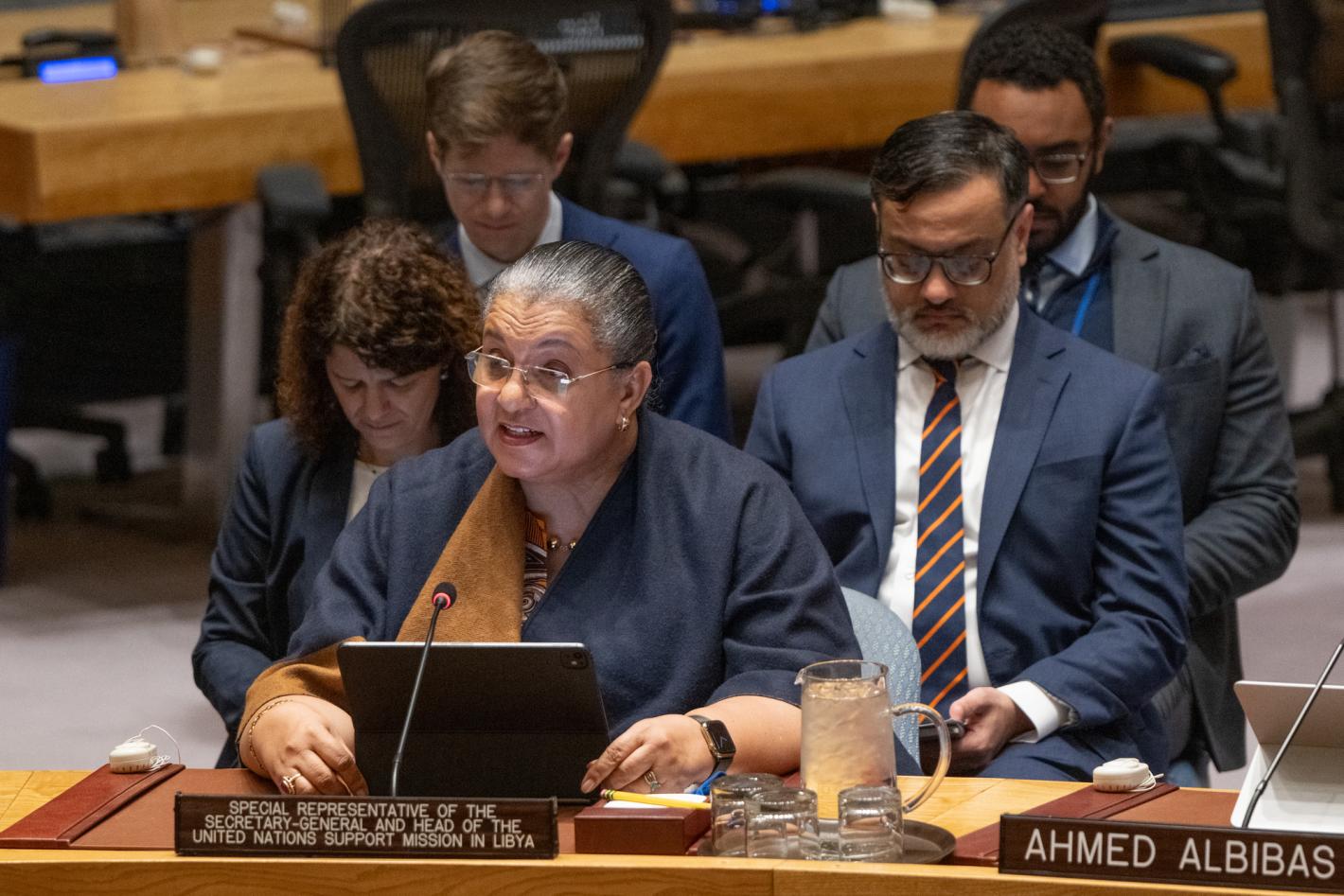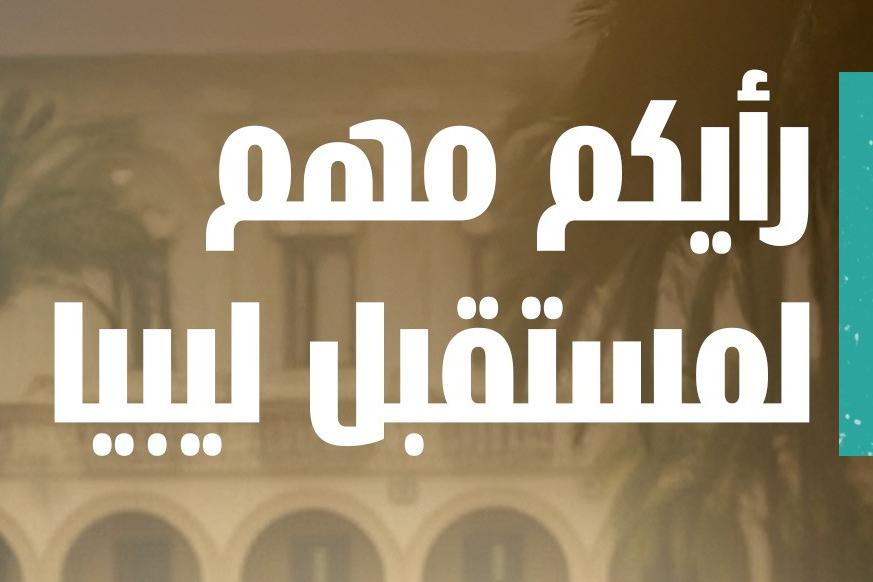السادة أعضاء اللجنة العسكرية المشتركة (5+5)، أصحاب المعالي، الزملاء المحترمون،
أود بداية أن أشكر اللجنة العسكرية المشتركة (5+5) على استضافتنا هنا في سرت. كما أتوجه بالشكر للسفراء المجتمعين معنا هنا من مجموعة العمل الأمنية وكذلك المجموعة الأكبر من ممثلي عملية برلين.
ولا يفوتني هنا أن أذكر بالطابع التاريخي لاجتماع مجموعة العمل الأمنية اليوم. أولاً، إن هذا الاجتماع هو الاجتماع الثالث من نوعه في ليبيا وهو يتطرق إلى التقدم الذي أحرزته هذه المجموعة بالفعل. ثانياً، هذا الاجتماع هو باكورة الاجتماعات في سرت وفي مقر اللجنة العسكرية المشتركة (5+5). وأخيراً، تحمل سرت أهمية أكثر عمقاً حيث أنها نقطة التقاء الشرق والغرب، وبالتالي فهي مدينة ترمز إلى السلام والتعاون. نأمل أن يشكل هذا بداية للعديد من الأنشطة التي ستجري هنا بين أعضاء اللجنة العسكرية المشتركة (5+5) والجهات الداعمة لما يقومون به من عمل لتنفيذ وقف إطلاق النار الموقع في 2020، بما في ذلك برامج بناء القدرات.
تلتقي هذه المجموعة اليوم بعد فترة وجيزة من التأخير، لإعادة إحياء الزخم ودعم اللجنة العسكرية المشتركة (5+5)، ولجانها الفرعية، بما في ذلك إحراز تقدم في تنفيد البنود المتبقية من اتفاق وقف إطلاق النار. وتحقيقاً لهذه الغاية، ترحب بعثة الأمم المتحدة للدعم في ليبيا ومجموعة العمل الأمنية ببيان اللجنة العسكرية المشتركة (5+5) في 25 أغسطس، ويلتزمان بتفهم التحديات الأمنية في ليبيا وبالعمل معاً للتغلب عليها. ونتطلع إلى الاستماع إلى العمل الهام الذي تقوم به مختلف اللجان الفرعية، بما في ذلك العمل على إخراج القوات الأجنبية والمقاتلين الأجانب والمرتزقة من الأراضي الليبية. كما نتوق لمعرفة ما تقوم به اللجنة الفرعية الخاصة بإزالة الألغام وجهودها الجارية لجعل ليبيا أكثر أمناً.
بالإضافة إلى ذلك، يواصل اللجنة العسكرية المشتركة (5+5)، بصفاتهم الهامة ضمن مؤسساتهم العسكرية، أداء دور مهم في تهدئة التوترات المحتملة في ليبيا. وقد ساهمت اللنة أيضا بشكل بناء في مبادرات وطنية مهمة، من بينها المحادثات الدستورية والتشريعية ومنتديات المصالحة الوطنية، وتهدئة التصعيد والتنسيق الأمني والعمل مع التشكيلات المسلحة. ولكل ذلك، نحن نشكركم ونحثكم على مواصلة هذه الأعمال الأساسية.
يقودني هذا إلى موضوع مهم آخر وهو الجهود الناشئة لإعادة توحيد إدارات عسكرية مختارة. وهذا العمل ليس دور اللجنة العسكرية المشتركة، بل هو من اختصاص العديد من الجهات الأمنية الليبية، إلا أنه سيمهد الطريق لتوحيد المؤسسات العسكرية والأمنية ويسهم في ضمان سيادة ليبيا وسلامة أراضيها. قد يستغرق هذا العمل بعض الوقت، بيد إن ثماره ستكون عظيمة المنفعة لليبيا وللشعب الليبي الذي نحن هنا جميعا لخدمته.
السادة أعضاء اللجنة العسكرية المشتركة، أصحاب المعالي، الزملاء المحترمون،
ما يزال منع نشوب النزاعات يشكل جزءاً هاماً من تفويض بعثة الأمم المتحدة للدعم في ليبيا. ولئن كانت جهودنا المشتركة قد أظهرت فعاليتها، إلا أنها تحتاج إلى التعزيز. لذا، فإننا نأمل في النظر في إنشاء آلية رسمية مشتركة لمنع النزاعات والتوصال داهل ليبيا. وسيساعد هذا على ضمان ألا يهدد أي "سوء تفاهم" السلام والأمن وأرواح الناس.
كما تعمل البعثة بشكل فاعل على تيسير مناقشات مهمة بين لجان الدفاع والأمن الوطني بمجلس النواب والمجلس الأعلى للدولة للنظر في مجالات الاهتمام المشترك في التشريعات الوطنية ذات الصلة بالأمن وتنفيذ العديد من التوصيات التي تم التوصل إليها بعد مشاورات مستمرة مع مسؤولي الأمن في جميع أنحاء البلاد.
وأخيرا، فإنه مما يشجعنا أيضاً الجهود المبذولة لوضع مدونة قواعد سلوك للجهات الأمنية الليبية، والتي تم التوافق عليها في شهر أيار / مايو 2024. وقد قام بوضع هذه المدونةج مجموعة واسعة من أصحاب الشأن الليبيين، وهي تستند إلى القانون الليبي القائم، وسوف تساعد، إلى جانب قانون النزاع المسلح والقانون الدولي الإنساني، في وضع معيار وطني لسلوك الجهات الأمنية وحماية أرواح المدنيين. وينطوي ذلك أيضاً على الاستماع إلى ممثلي المجتمع المدني، بما في ذلك النساء والشباب من الشرق والغرب والحنوب، لتحديد كيف يمكن للمؤسسات الأمنية تحسين الأوضاع في مجتمعاتهم المحلية. وكانت البعثة قد استضافت سلسلة من الاجتماعات مع هذه الجهات الفاعلة، وندعو المؤسسات الأمنية الليبية إلى إشراك هذه الأصوات المدنية في جهودها الرامية إلى خلق بيئة أكثر أمناً واستقراراً.
وفي الختام، تكرر البعثة دعمها للجنة العسكرية المشتركة (5+5) والمؤسسات الأمنية الليبية الأخرى لإيجاد حلول للمسائل الأكثر إلحاحاً.
أتطلع إلى هذا النقاش والكثير من النقاشات الأخرى خلال الأشهر المقبلة.
شكراً لكم.






